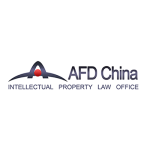
China has been in first place in the statistics for trademark registrations for over a decade. Accompanying the boost in the number of applications is a disproportionate incidence of malicious trademark registrations that create issues for the trademark administration and disturb the market order. In this article, we introduce relevant concepts and practices to help right holders come up with effective solutions.
Legal basis
Malicious trademark registration is usually defined as any trademark application that violates the principle of legitimacy and good faith/a bona fide business purpose. The most common conduct in this regard includes trademark squatting, appropriation and imitation, infringements of others' prior obtained rights, misuse of public resources, and massive or repeated registrations in bad faith. Although there is no definition of "malicious registration" in the Trademark Law of China, the basis for combating malicious registration can still be found in the following articles (as well as other provisions that might be applicable):
Article 4 – right to apply for trademark registration
Article 7 – principle of good faith
Article 10.1(7) – prohibition of registration of a trademark which is fraudulent or liable to mislead the public about the characteristics of the goods, such as the quality or the place of origin
Article 10.1(8) – prohibition of registration of a trademark which is detrimental to socialist morality or customs or has other bad influence
Article 13 – prohibition of registration of a trademark constituting a reproduction, an imitation, or a translation of a well-known trademark of another person
Article 15 – prohibition of unauthorised registration of trademarks by agents, representatives or parties of contractual, business, or other relationship
Article 32 – prohibition of registration of a trademark infringing other's existing prior right or with intent to register another's mark of certain reputation
Article 44.1 – invalidation of a trademark acquired by deceptive or any other improper means
Practice of the trademark office
In the surge of implementing measures to curb abnormal applications and trademark hoarding, the trademark office (TMO) became more active in the examination of malicious trademark applications. The usual grounds for rejection applied by the TMO were violation of the good faith principle, causing bad influence and/or disturbance of public order or good morals, and likelihood of confusion. We also observed some rejections based on lack of legitimacy recently.
The TMO also plays an important role in combating malicious registration in opposition proceedings.
In a normal opposition to pre-emptive registration, the likelihood of winning the case depends heavily on whether the opposing party can provide sufficient use evidence of their own mark in China before the filing date of the opposed mark(s). However, in a situation where the malice of the opposed party is confirmed, the examiner will balance the arguments and may lower the requirement for weight of use evidence. Moreover, once malicious registration is established, the rejection applies not only to the opposed party's application(s) on similar designated goods to that of the opposing party, but may also apply to application(s) on non-similar goods.
The TMO also conducts collective examination on multiple oppositions against the same opposed applicant in order to obtain a more comprehensive assessment and to avoid conflicting decisions in similar cases.
Among the grounds, Articles 10, 13, 15, and 32 of the Trademark Law are widely cited to oppose malicious registrations. Articles 16, 30 and 31 may be referred to when considered in combination with other facts or situations. Articles 4 and 7 may be referred to in the argument of the opposing party to claim that the applicant possesses malice.
Regarding the entity carrying out the malicious registration, only Article 15 provides a specific description (agents, representatives, parties having contractual, business, or another relationship with the genuine right holder). The TMO determines whether Article 15 has been violated by looking at the Standards for Trademark Examination and Adjudication, considering the following factors: the unregistered mark was used before filing of the opposed mark; due to the relationship, the applicant knows of the existence of the unregistered mark; and the opposed mark and the unregistered mark are similar and to be used on similar goods. The standards also clarify that such a "contractual/business relationship" refers to trading, commissioned processing, franchising, investment, sponsorship, co-organising events, business investigation, consulting, or advertising, while "other relationship" includes kinship and affiliation.
TRAB practice
A significant portion of malicious registration cases adjudicated by the Trademark Review and Adjudication Board (TRAB) concern registrations by deceptive or improper means (Article 44.1), registration in conflict of prior rights (Article 32), and registration causing other bad influence (Article 10.1(8)). The examination standards in these circumstances have resulted in many discussions over the years.
Generally speaking, when determining "likelihood of malice", the TRAB usually takes into account the originality of the opposing party's mark, the approximation between the opposed mark and the opposing party's mark, the similarity of the goods designated for use, the relevant public and the use of the opposing party's mark in China. If the TRAB believes that the goods/services are related and that the prior mark has strong originality or fame, which may cause confusion in the relevant public, even if the goods of the opposing and the opposed parties are not similar, it is possible that the pre-emptive registration will be rejected because of bad faith.
Regarding registration "by other improper means", the literal reference limits the application of Article 44.1 merely to the challenge of registered trademarks. However, not applying it to pre-grant phase means a trademark application having this flaw will be allowed registration and then, in later procedures, will be invalidated and thus deemed as not existing from the very beginning. Such conduct will waste administrative resources, affect the stability of the trademark registration system, allow malicious registrations, and more importantly is not in conformity with the legislative intent of the Trademark Law. Accordingly, the TRAB and the courts have reached a consensus, applying unified standards in adjudicating the granting and validation of trademark rights.
According to the Standards for Trademark Examination and Adjudication, three types of conduct are deemed registration "by other improper means":
registering a number of trademarks that are identical to or similar to others' trademarks of strong distinctiveness;
registering a number of trademarks that are identical to or similar to others' trade name, business name, or unique name, packing and decoration of well-known goods;
hoarding a large number of trademarks without genuine intention to use.
The TRAB usually considers at least the following factors when determining other improper means: whether trade or cooperation, staff transfers and disputes occur between the two parties; the industries and areas of the parties; whether the trademark applicant of the suspected malicious registration has made profits or demanded high royalty from licensees or compensation from infringers or sought improper interests; the originality or distinctiveness of the victim trademark; the degree of similarity between the disputed mark and the victim trademark. In addition, the fame of the victim mark and the number of trademark applications hoarded by the applicant may play a part in the determination of malice or impropriety.
Similar rules are applied to the determination of "malice" in registering a mark that is a copy, imitation, or translation of a well-known trademark. Where a registration has been made in malice, the owner of a victim well-known trademark will not be bound by the five-year time limit for a request for invalidation, pursuant to Article 45.1.
Regarding registration "infringing others' prior rights", the scope of prior rights in Article 32 covers well-known trademarks, unregistered trademarks, unique names, packaging, decoration of well-known goods, trade names, business name, copyrights, designs, rights to trade names, portraits and names, as well as merchandising rights, such as titles of movies that have gained a certain fame in the market. When determining pre-emptive registration in view of Article 32, the TRAB usually takes into account the degree of "certain influence" and the context of "improper means" and conducts a comprehensive assessment.
Regarding registration causing "other bad influence", in the context of "malicious registration" this usually refers to circumstances where the words, graphics or other constituent elements of trademarks have negative effects on politics, economics, culture, religion, ethnicity, other social interests, or public order, pursuant to Article 10.1(8). In practice, applying for registration of names or similar names of public figures in the above-mentioned fields as trademarks may fall within the scope of causing "other bad influence". In contrast, registering the name of a celebrity is considered an infringement of another person's right to their name, and is thus governed by Article 32. A typical example of this is the invalidation declaration of the "Tu Youyou" (a Nobel Prize winner in physiology or medicine) trademark.
Practice of the CNIPA
As the superior authority to the TMO and the TRAB, the National Intellectual Property Administration of China (CNIPA) oversees the administration of trademark registration at a higher level.
It released a draft version of Several Provisions for Regulating Trademark Application Actions on February 12 2019 for public comments. The draft defines the different types of abnormal trademark registrations and the corresponding legal consequences such as deprivation of qualification for financial support from the government.
It organises special campaigns to combat malicious trademark registrations.
It carries out research in order to establish a list of trademarks that need protection as a priority, to determine the scope of such protection, and to launch an appropriate legal scheme for it.
It builds a database of suspects of malicious trademark registrations, incorporating the information into the National Credit Information Sharing Platform which can be accessed by the public and acquired by relevant departments in order to take disciplinary measures in accordance with the law.
Court practice
The Supreme People's Court issued Several Issues concerning the Trial of Administrative Cases involving the Granting and Confirmation of Trademark Rights which came into effect in March 2017. The provisions reinforce the principle of good faith regarding malicious registrations and clarify the application of the law to make it more compliant with legislative intent.
Upon the implementation of the provisions, a few typical cases were put forward as examples of applications:
administrative lawsuit against the TRAB's decision on invalidation declaration of trademark "博拉尼-康纳特BRANE-CANTENAC" – pre-emptive registration by agent/representative;
administrative lawsuit against the TRAB's decision on review of rejection of trademark "片仔癀八宝丹" – pre-emptive registration of trademark of certain fame which has been used by others from a prior date;
administrative lawsuit against the TRAB's decision on invalidation declaration of trademark "sheer love十分爱" – hoarding trademarks without genuine intention to use;
administrative lawsuit against the TRAB's decision on invalidation declaration of trademark "AUPU奥普" – imitating other's well-known trademark with malice and the exception of time limit for requesting invalidation.
Advice
Register your mark(s) as early as possible. If your mark suffers pre-emptive registration by others, you will have to put in extra time and money to seek revocation, remedy, or resolution and there is no guarantee of a good result. Therefore filing early is the best defence to malicious registration.
Plan for specific and comprehensive protection for your mark(s) – look at not only the mark but also the goods/services on which the mark will be used. You are advised to actively preserve evidence of use, fame, business relationships, etc. according to the aforesaid points. However, please keep in mind the need to prevent trademark dilution, especially when your mark has gained certain fame already.
Prepare for possible risks. Monitor the market and the trademark gazette, take efficient measures to seek remedy or redress, and keep up to date with the law and practice.
Xia Zheng |
||

|
|
Xia Zheng is president and founder of AFD China, and a patent attorney, trademark attorney and attorney at law. She started her career in IP in 1987 and practises in many areas of the field, including IP strategy, prosecution, post-grant proceedings and IP-related litigation. Zheng is an active participant in the industry and is recommended as a leading practitioner by numerous publications, including MIP’s IP Stars. She was named a National IP Talent in 2016, Beijing Outstanding Patent Attorney of 2014 and labelled an Excellent Legal Professional in Haidian in 2012. |
Mengmeng Yu |
||

|
|
Mengmeng Yu is an associate at AFD China. She is a patent attorney and a registered plant variety rights agent. She focuses her practice on IP prosecution and advice. Her role in the firm also includes acting as a client and media liaison to maintain supportive partnerships with overseas clients, and arrange media exposure and publicity. Yu holds a doctorate in biotechnology and a BEng in food science. She also worked as a visiting scholar at the Beltsville Agricultural Research Centre of the US Department of Agriculture, where she trained as a chemical analyst in 2009-2010. |













